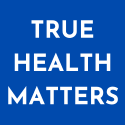Groundbreaking studies reveal the benefits of N-Acetylcysteine on endometriosis-related inflammation, disease-progression, and fertility.
Dueling Aspects of Endometriosis – Inflammation and Proliferation
Endometriosis is a chronic, hormone-dependent, progressive, and inflammatory disease characterized by the presence of endometrial tissue outside of its normal location within the uterine cavity.
With regard to the impact endometriosis has on female health there are two very important issues that need to be addressed – inflammation and disease proliferation.
In terms of inflammation, endometriosis lesions are well-known to promote a heightened inflammatory response within the body via oxidative stress, which is directly linked to disease impact, persistence and progression.
This hyper-inflammatory nature of endometriosis is directly related to its known involvement in infertility, miscarriage, abnormal bleeding, and its notable association with female pelvic pain.
For example, the inflammation produced by endometriosis initiates the release of reactive oxygen species (ROS) – including free radicals and non-free radicals – that directly cause cellular tissue damage. In fact, endometriosis-related ROS are known to negatively impact egg quality and ovulation resulting in infertility, and heighten the risk of miscarriage.
In terms of proliferation, endometriosis implants act like a weed – in a way – progressively growing and spreading throughout the body creating local disease invasion and associated pelvic adhesions causing a constellation of female-health issues and fertility-related dysfunction. Specifically, endometriosis proliferation damages healthy fertility by directly invading and distorting the essential reproductive organs such as the fallopian tubes, uterus, and ovaries.
While surgical removal remains the definitive treatment of endometriosis implants, there remains an important role and need for medications that minimize the impact of endometriosis.
The most common forms of medical management include non-steroidal anti-inflammatories (NSAIDs) such as ibuprofen, and artificial hormones (birth control). But these forms of medical support may be undesirable, and are associated with severe side effects seen with both short-term and long-term use.
For example, women who desire fertility, or who have other known medical contraindications, are unable to utilize birth control for hormonal suppression. In addition, chronic NSAID use has been shown to increase the risk of gastrointestinal, renal, and cardiovascular issues; and birth control is associated with elevated cardiovascular, metabolic, and neoplastic risks.
Thus, there remains a very-real unmet need for endometriosis-related support strategies that contain fewer side effects and which do not interfere with a woman’s fertility.
N-acetylcysteine (NAC) a Potent Antioxidant
N-acetylcysteine (NAC) is a substance with natural antiproliferative and antioxidant properties. NAC is the acetylated form of the amino acid cysteine, which is naturally present in certain foods including garlic, chicken, turkey, yogurt, and eggs.
NAC is the precursor to the potent antioxidant glutathione, which contains anti-inflammatory properties known to decrease ROS throughout the body.
Amazingly, NAC exerts a marked antiproliferative action on certain in vitro cancer cells via a complex pathway resulting in a decrease in cellular-locomotor behavior. And the cancer cells in which NAC has shown a benefit are similar in origin to endometrial cells. Accordingly, NAC could decrease endometriosis proliferation in the same way it has been shown to decrease certain types of cancer cell progression.
And as a medication, NAC is safe, inexpensive, and widely-available with studies showing no maternal or fetal harm.
Thus, given NAC’s anti-inflammatory and antiproliferative properties along with its well established safety prolife and wide availability, NAC’s potential utility in the medical support of endometriosis has recently been the focus of a series of ground-breaking studies.
Promising Support for Endometriosis
A 2013 study by Porpora et al. was the first of its kind to evaluate the effectiveness of NAC supplementation on endometriosis-related issues. Specifically, the study focused on ovarian endometriomas, which are a unique type of endometriosis cyst that impacts the ovary directly and is associated with a higher stage of endometriosis, pelvic adhesions, disease extension and spread.
For the study, women with a known ultrasound diagnosis of an ovarian endometrioma cyst were given 600 mg of NAC, three times a day over the course of three consecutive days each week – for a total of three months.
Of note, NAC was well tolerated by all individuals and there were no adverse reactions reported.
The study revealed NAC support significantly decreased the size of ovarian endometriomas and the authors concluded that “[i]n terms of reduction in cyst size, our data [ ] [is] even more favorable than those granted by the current adopted hormonal treatments, with the further advantages of fertility preservation and the virtual absence of undesired side effects.” [4]
Given these remarkable findings, Anastasi et al. performed a 2023 follow-up study designed to confirm, and further evaluate, the initial results. Treatment with NAC – utilizing the same dosing as the initial study – was evaluated in women with a clinical or surgical diagnosis of endometriosis. The authors found statistically-significant reductions in the following – pelvic pain (including cyclical pelvic pain, pain with intercourse, and chronic pelvic pain); NSAID use; endometrioma size; and Ca-125 levels (a serum marker that can be elevated in women with endometriosis due to inflammation). In addition, 75% of the trial participants who desired pregnancy successfully conceived during the duration of the study. The results of the study led the authors to conclude:
“[NAC] is effective in reducing endometriosis-related pain symptoms, the size of endometriomas and the serum levels of Ca-125. Furthermore, it showed a positive impact on patient fertility. NAC may represent a good therapeutic option for symptomatic women with endometriosis and pregnancy desire.” [1]
True Health Matters Summary
Endometriosis is an inflammatory and proliferative disease causing various health and fertility-related issues.
Groundbreaking research evaluating the use of NAC reveals this form of medical, antioxidant support addresses the dueling inflammatory and proliferative aspects of endometriosis revealing the promising benefits of NAC in decreasing endometriosis-related pain, endometrioma cyst size, and potentially improving fertility.
NAC has also been proven to be safe, well tolerated, and widely available while also providing assistance for women desiring pregnancy – meeting a large and unmet need in the medical support of endometriosis.
Click for References
[1] Anastasi E, Scaramuzzino S, Viscardi MF, Viggiani V, Piccioni MG, Cacciamani L, Merlino L, Angeloni A, Muzii L, Porpora MG. Efficacy of N-Acetylcysteine on Endometriosis-Related Pain, Size Reduction of Ovarian Endometriomas, and Fertility Outcomes. Int J Environ Res Public Health. 2023 Mar 7;20(6):4686. doi: 10.3390/ijerph20064686. PMID: 36981595; PMCID: PMC10048621.
[2] Marcum ZA, Hanlon JT. Recognizing the Risks of Chronic Nonsteroidal Anti-Inflammatory Drug Use in Older Adults. Ann Longterm Care. 2010;18(9):24-27. PMID: 21857795; PMCID: PMC3158445.
[3] Mokhtari V, Afsharian P, Shahhoseini M, Kalantar SM, Moini A. A Review on Various Uses of N-Acetyl Cysteine. Cell J. 2017 Apr-Jun;19(1):11-17. doi: 10.22074/cellj.2016.4872. Epub 2016 Dec 21. PMID: 28367412; PMCID: PMC5241507.
[4] National Research Council (US) Committee on Population. Contraception and Reproduction: Health Consequences for Women and Children in the Developing World. Washington (DC): National Academies Press (US); 1989. 4, Contraceptive Benefits and Risks. Available from: https://www.ncbi.nlm.nih.gov/books/NBK235069/
[5] Porpora MG, Brunelli R, Costa G, Imperiale L, Krasnowska EK, Lundeberg T, Nofroni I, Piccioni MG, Pittaluga E, Ticino A, Parasassi T. A promise in the treatment of endometriosis: an observational cohort study on ovarian endometrioma reduction by N-acetylcysteine. Evid Based Complement Alternat Med. 2013;2013:240702. doi: 10.1155/2013/240702. Epub 2013 May 7. PMID: 23737821; PMCID: PMC3662115.


